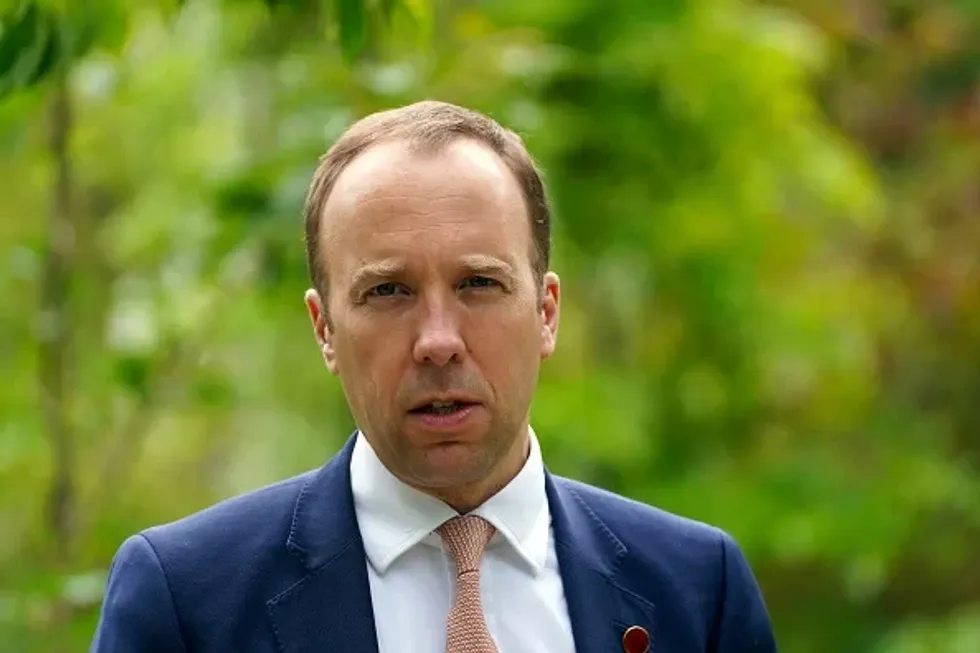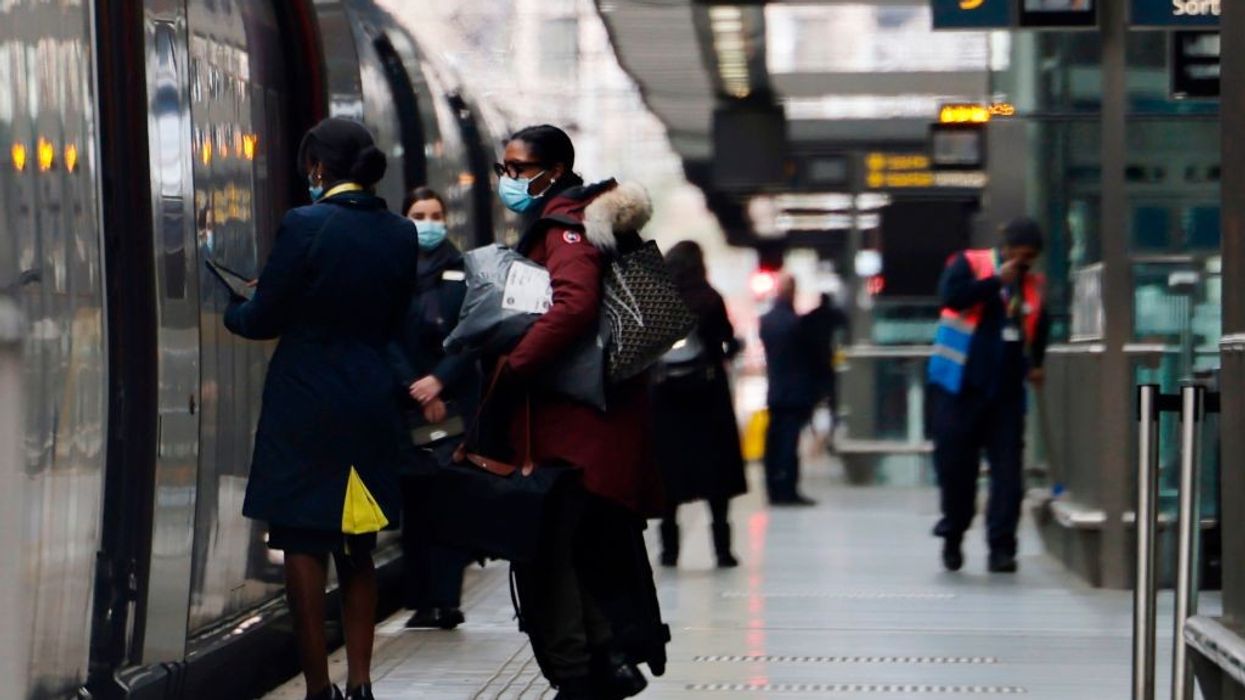TESTING INSTEAD OF ISOLATION AND AMBER-LIST TOURISM BEING DISCUSSED, SAYS HANCOCK
THE UK government is working on plans to open quarantine-free travel to amber-list countries for the fully vaccinated, health secretary Matt Hancock said on Tuesday (22).
He confirmed that ministers hoped to get rid of the requirement, which sees people isolate for 10 days when they return from a country on the list.
“We’re working on plans to essentially allow the vaccine to bring back some of the freedoms that have had to be restricted to keep people safe,” the health secretary told Sky News.
Asked if people could expect to have a family holiday, Hancock said, “We’ll get there when it’s safe to do so... but of course we do want to get those freedoms back. When I’m in a position to be able to say something more concrete, then we will do, but it is absolutely something we’re working on, it’s something I want to see.”
To another question on whether the plans would come to fruition by August, Hancock said: “We’ll get there when it’s safe to do so.”
Recent data on cases looks “encouraging”, the health secretary said, and suggested England’s lockdown can fully end
on July 19 as planned.
The original Monday (21) date was postponed by prime minister Boris Johnson last week after a recent rise of Covid-19 cases.
“We’re on track for the opening on July 19, and we will watch vigilantly, and we’ll look at the data in particular at the start of next week,” Hancock said.
“But I would say the data over the last week or so has been encouraging, and especially looking at the number of people who are dying, that is staying very low, and it shows the vaccine is working.”

Hancock also revealed details on an ongoing pilot scheme, which aims to drop the self-isolation requirement for people who have received two doses of the vaccine if they are exposed to someone with the virus.
“We are piloting that approach that if you’ve had two jabs, instead of having to isolate if you’re a contact, you have a testing regime,” he said. “We’re piloting that now to check it will be effective. It is something we’re working on, we’re not ready to be able to take that step yet.”
Hancock also spoke of future plans to ramp-up the flu vaccination over the winter months, voicing concerns of the potential impact on the NHS.
“We are currently doing all the work to see if we can have a Covid booster shot and flu jab at the same time, but this winter will be challenging,” he said.
“We do need to make sure we protect the NHS this coming winter. We have got time to do the preparation for that now, though, and make sure we are as vaccinated as possible because that is the way to keep people safe.”
Meanwhile, an Imperial College London study last week found the rapid spread of the Delta variant has driven a 50 per cent rise in infections in England since May.
The latest round of the REACT-1 prevalence survey, conducted between May 20 and June 7, found prevalence was 0.15 per cent, compared to 0.10 per cent in the last set of data from late April to early May.
“Prevalence is increasing exponentially, driven by younger ages... and appears to be doubling every 11 days. Clearly, that is bad news,” Steven Riley, professor of infectious disease dynamics, Imperial College London, said.
It is one of the largest prevalence surveys in Britain, with 109,000 volunteers tested in its latest round.
Riley added that the high vaccination levels made it hard to predict how long the exponential growth would last, saying the rollout of vaccines to younger age groups should slow it down.
More than half of Britain’s adult population has received two vaccine doses, and more than three-quarters of adults have taken at least one vaccine dose.
‘Day of action’ for summer season
BRITAIN’S airlines and holiday companies staged a “day of action” on Wednesday (23) to ramp up pressure on the government to ease international travel restrictions, with just weeks to go before the start of the peak summer season.
Travel companies, whose finances have been stretched to breaking point during the pandemic, are desperate to avoid another summer lost to Covid-19.
But with Britain’s strict quarantine requirements still in place that now looks likely.
As the clock ticks down to July, Europe’s biggest airline Ryanair and Manchester Airports Group last Thursday (17) launched legal action to try to get the government to ease the rules before the industry’s most profitable season starts.
On Wednesday, pilots, cabin crew and travel agents gathered in Westminster and at airports across Britain to try to drum up support.
Figures showed daily arrivals and departures into the UK were down 73 per cent on an average day earlier this month, compared to before the pandemic.
Airports were also badly affected, with traffic at London’s second busiest airport Gatwick down 92 per cent, according to the data.
The government had to balance the risks of foreign holidays bringing new variants of the virus into Britain, justice minister Robert Buckland told the BBC.
Public Health England official Susan Hopkins said people should holiday at home this summer while the population is vaccinated.
More than 45,000 jobs have already been lost in UK aviation, with estimates suggesting that 860,000 aviation, travel and tourism jobs are being sustained only by government furlough schemes.
(With agencies)





